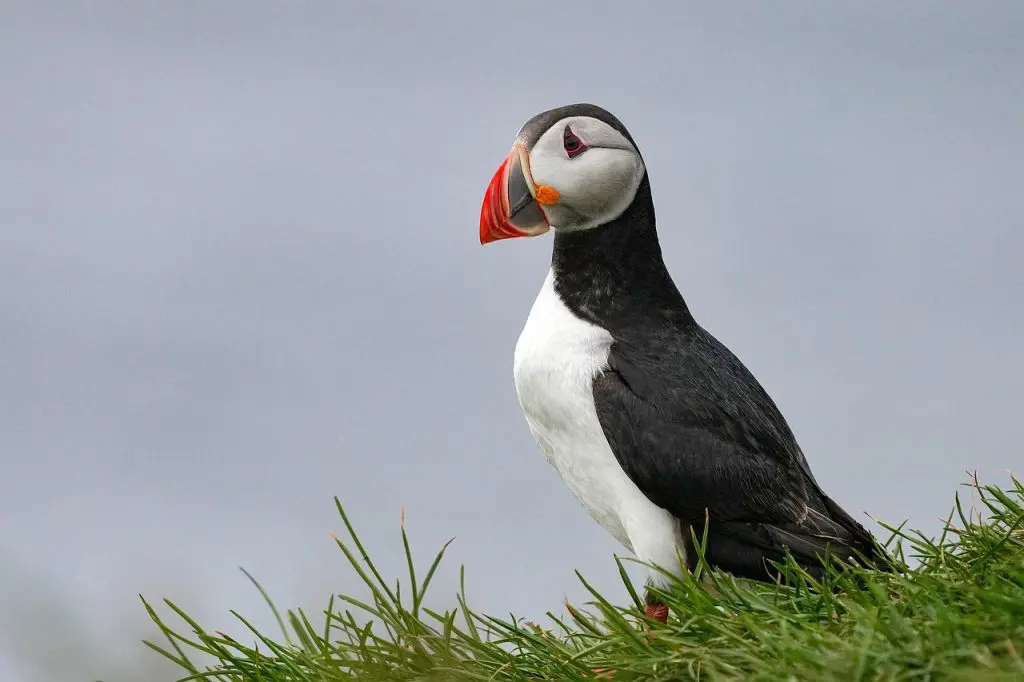
DAERA Investigated for Possible Failures in Protecting Wild Bird Habitats The Department of Agriculture, Environment and Rural Affairs (DAERA) may have failed to comply with environmental law, according to findings from a recent investigation by the Office for Environmental Protection (OEP). The inquiry focuses on the protection of Special Protection Areas (SPAs) for vulnerable wild […]
The Department of Agriculture, Environment and Rural Affairs (DAERA) may have failed to comply with environmental law, according to findings from a recent investigation by the Office for Environmental Protection (OEP). The inquiry focuses on the protection of Special Protection Areas (SPAs) for vulnerable wild bird species in Northern Ireland, including puffins, whooper swans, and light-bellied Brent geese.
Birds are deeply woven into the ecological, cultural, and environmental fabric of Ireland. They are not only vital indicators of ecosystem health, but also contribute to the beauty and diversity of the Irish landscape. From migratory whooper swans arriving in Lough Neagh to the striking puffins nesting on coastal cliffs, birdlife supports local tourism, scientific research, and traditional rural identities.
Moreover, Ireland is a globally significant location for certain migratory species like light-bellied Brent geese and whooper swans, which rely on Irish wetlands and estuaries during winter months. These birds depend on well-managed and protected habitats, making compliance with SPA regulations not just a legal duty, but a conservation necessity.
According to recent data cited by the OEP, approximately 25% of bird species on the island of Ireland are now on the Birds of Conservation Concern Red List. The reasons are complex and interconnected:
Habitat Loss and Degradation: Land-use changes, pollution, and agricultural intensification have reduced the quality and availability of nesting and feeding sites.
Climate Change: Rising temperatures and shifting weather patterns disrupt migratory patterns and reduce food availability.
Weak Environmental Enforcement: As the investigation suggests, gaps in the designation and management of protected areas are undermining conservation efforts.
Disturbance and Development: Coastal development, human activity, and tourism—if not properly managed—can disrupt breeding colonies and fragile habitats.
The investigation, launched in March 2024, followed DAERA’s apparent failure to implement recommendations from the Joint Nature Conservation Committee (JNCC) and other conservation bodies. These recommendations were related to the classification and management of SPAs under environmental protection laws.
OEP’s chief regulatory officer, Helen Venn, stated that the government has a legal duty to maintain wild bird populations and ensure they have suitable habitats. The investigation found potential failures by DAERA to meet these obligations.
Venn also cited the worrying decline of bird populations across Northern Ireland, with recent studies showing that about a quarter of bird species on the island of Ireland are now on the Birds of Conservation Concern Red List.
Ultimately, the environmental and legal implications of the findings are significant. SPAs are designated under European legislation to safeguard the most vulnerable bird species. Any failure to properly designate, manage, or adapt these areas threatens not only bird populations but also Northern Ireland’s compliance with environmental law.
While the OEP has issued a formal information notice to DAERA, requiring a response by 5 August 2025, it has also signalled that legal action could follow if compliance issues remain unresolved.
In a statement, DAERA said it welcomed the OEP’s investigation and acknowledged that “there is much more to do to protect our natural environment and the habitats that wild birds and other wildlife need to survive and thrive.” The department has pledged to consider the findings carefully.
This is one of several investigations by the OEP, which was established to hold public authorities in England and Northern Ireland accountable for environmental protection. A parallel investigation is underway in England, with similar notices issued to the Department for Environment, Food and Rural Affairs (Defra) and Natural England.
The OEP has the authority to issue formal notices, make recommendations, and take enforcement actions—including legal proceedings—if public bodies fail to meet their environmental obligations.
Moreover, the potential failure by DAERA to comply with environmental law in protecting at-risk wild birds raises serious concerns about environmental governance in Northern Ireland. Swift and transparent action is needed to address declining bird populations and increased pressure on wildlife habitats. These shortcomings need to be dealt with quickly for DAERA and other bodies to uphold environmental protections.
As the deadline for DAERA’s formal response approaches, environmental groups and the public will be watching closely to ensure meaningful progress is made in safeguarding the region’s natural heritage.
At All-Ireland Sustainability, we’re committed to building a greener, fairer island—together. Stay informed on the latest environmental initiatives, community action, and policy developments shaping sustainability across Ireland, North and South.
👉 Sign up for our newsletter today and be the first to hear about upcoming events, expert insights, and ways to get involved.
Whether you’re a seasoned advocate or just starting your journey, new members are always welcome—your voice matters.
Subscribe now and be part of the All-Ireland Sustainability network.